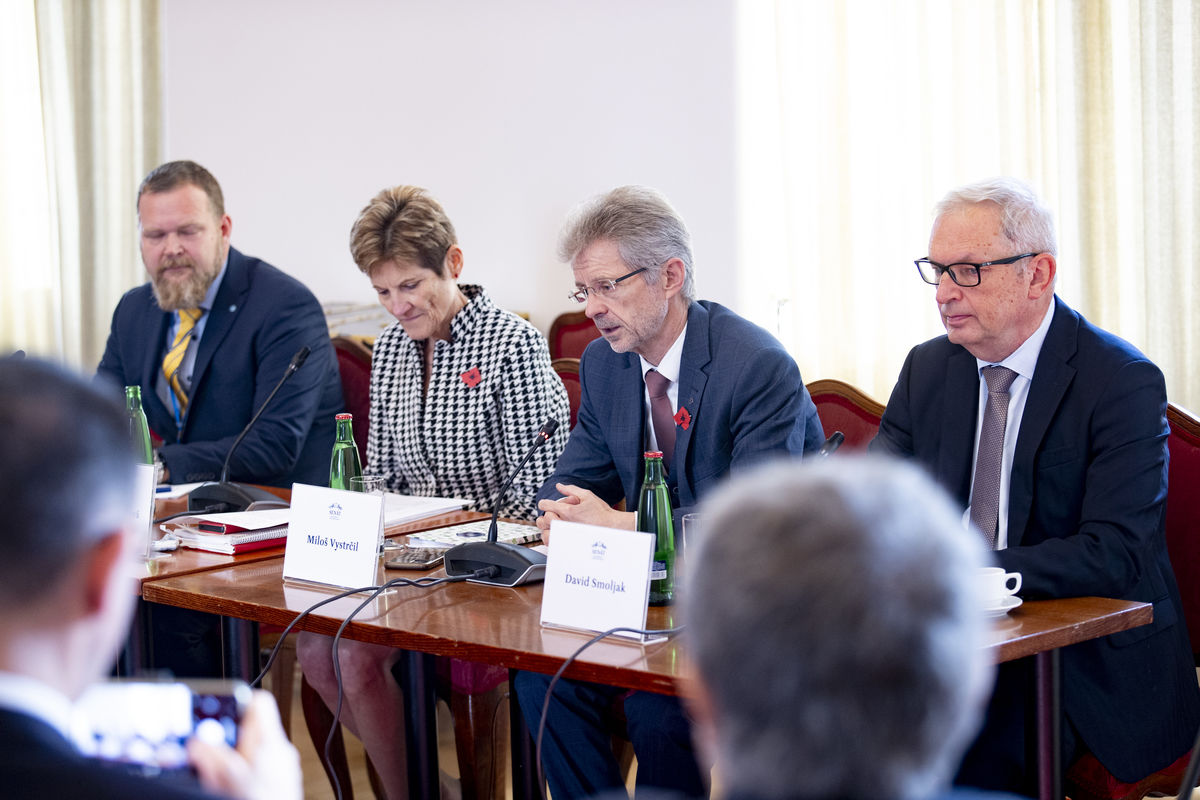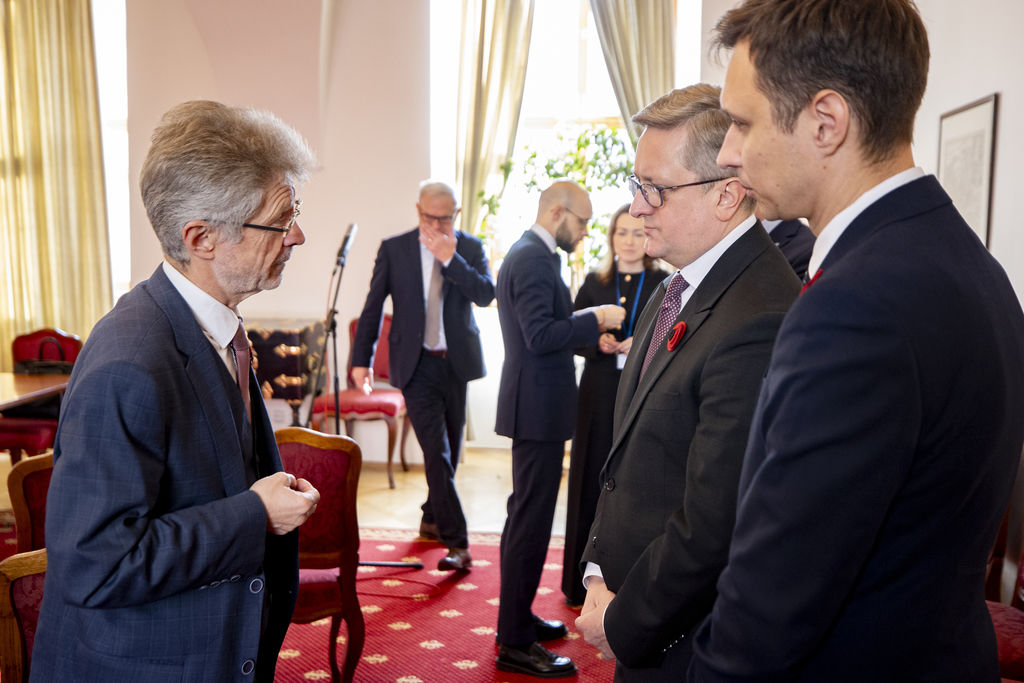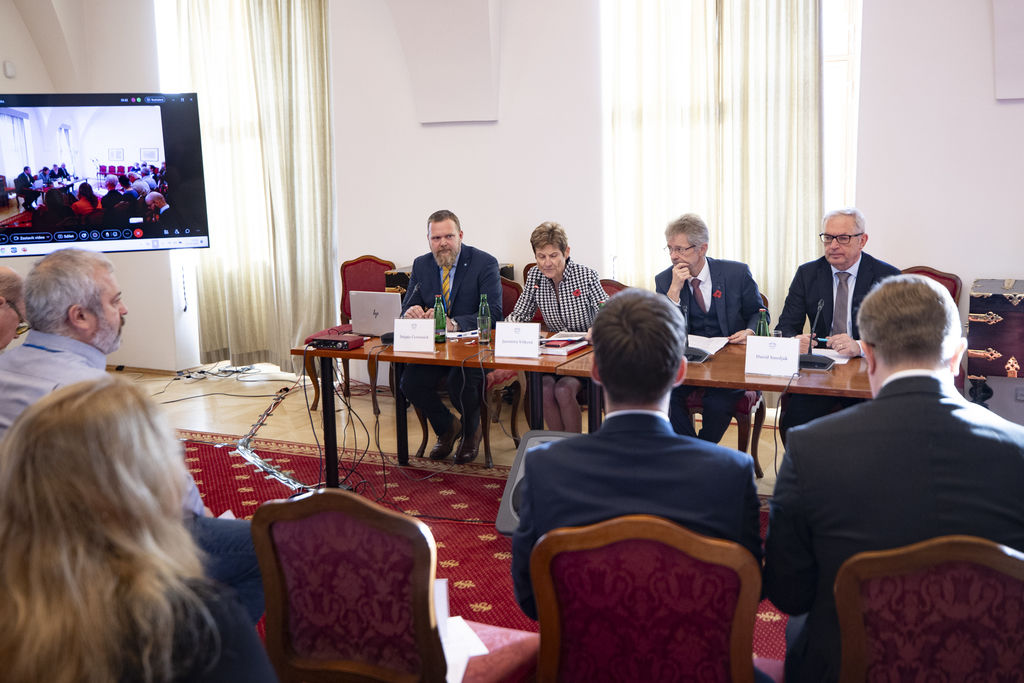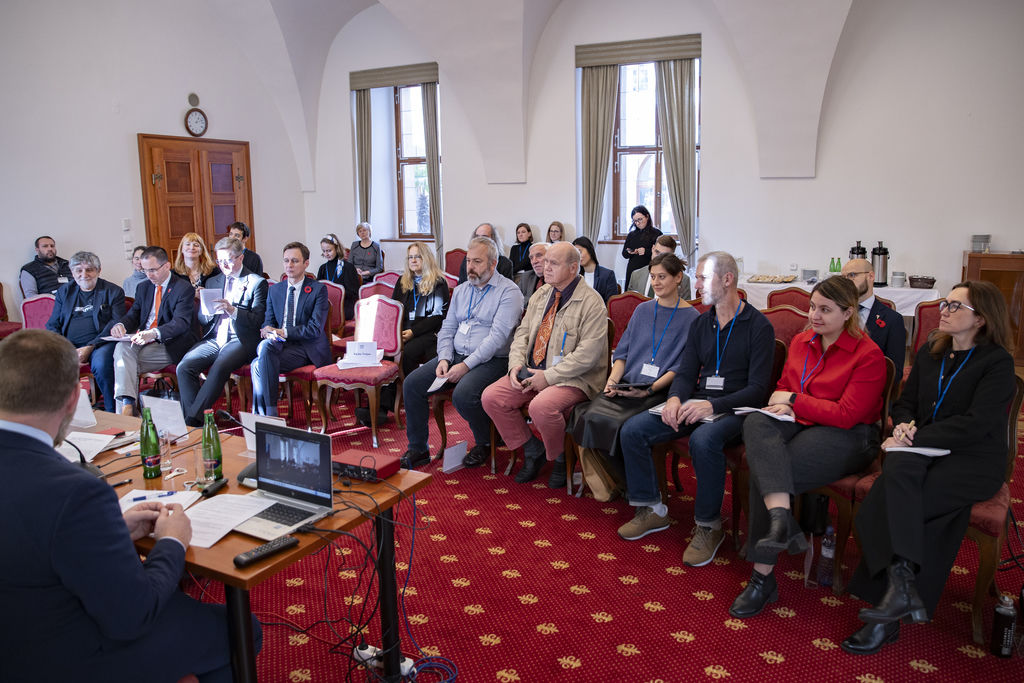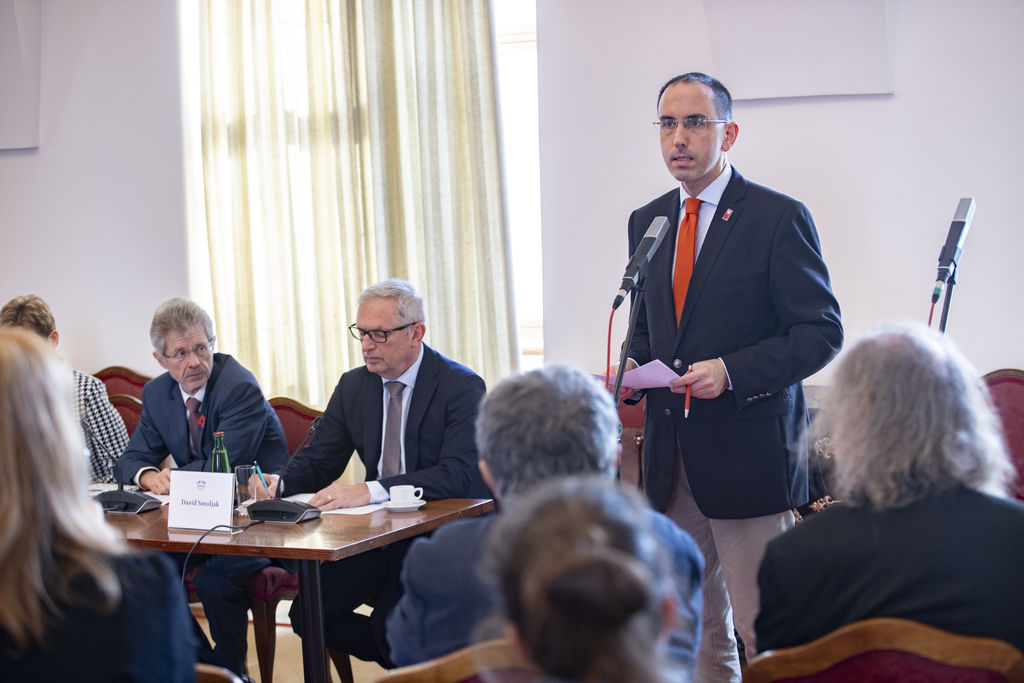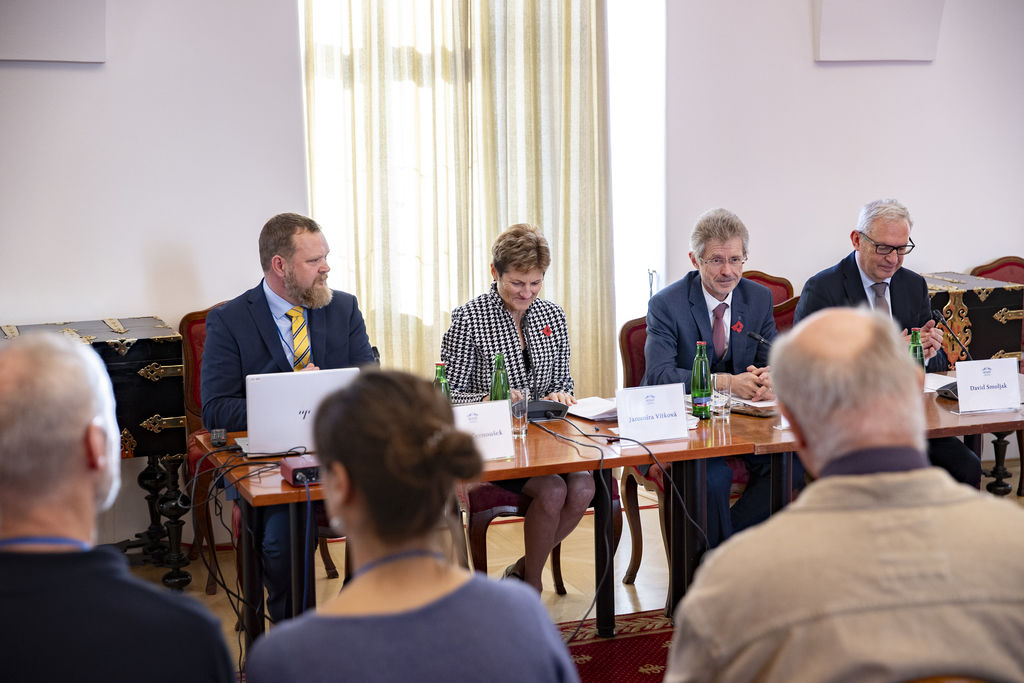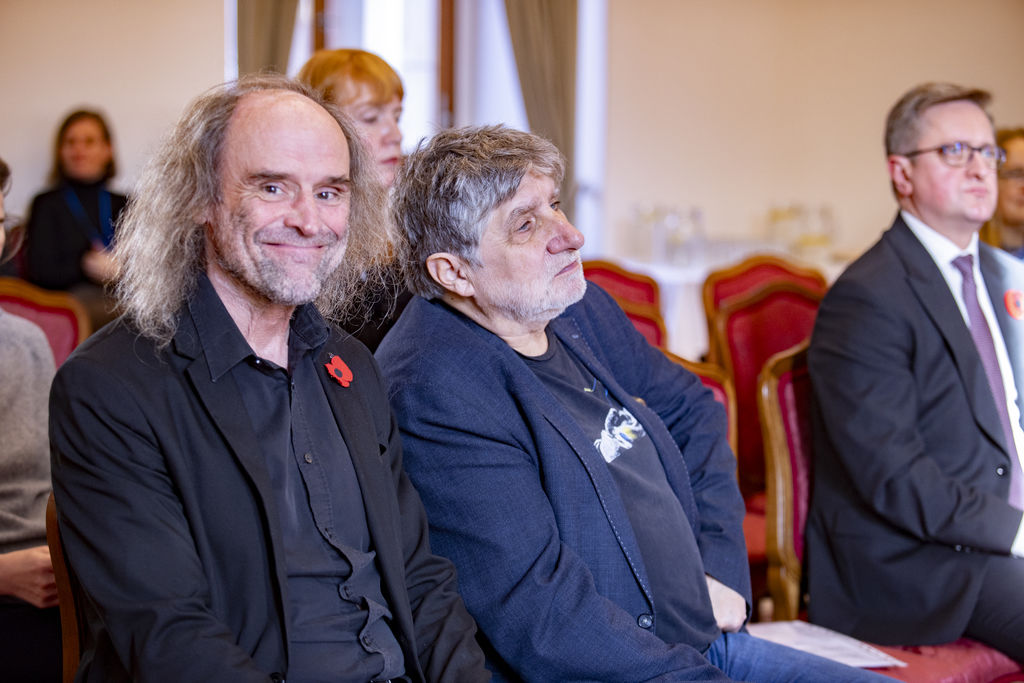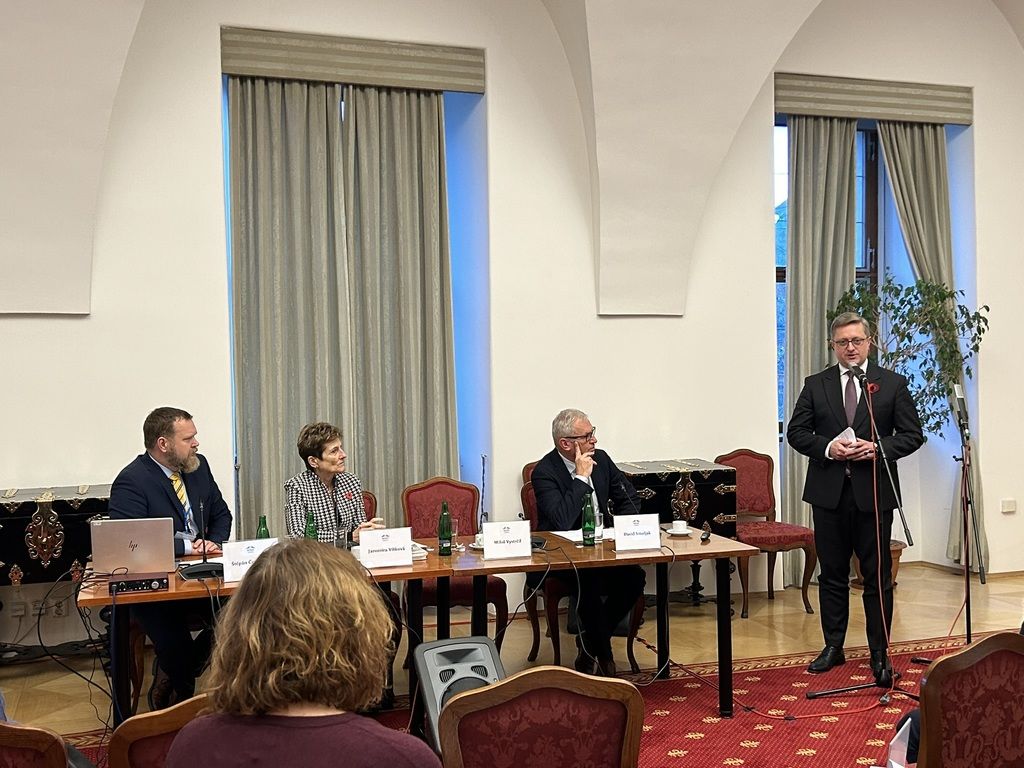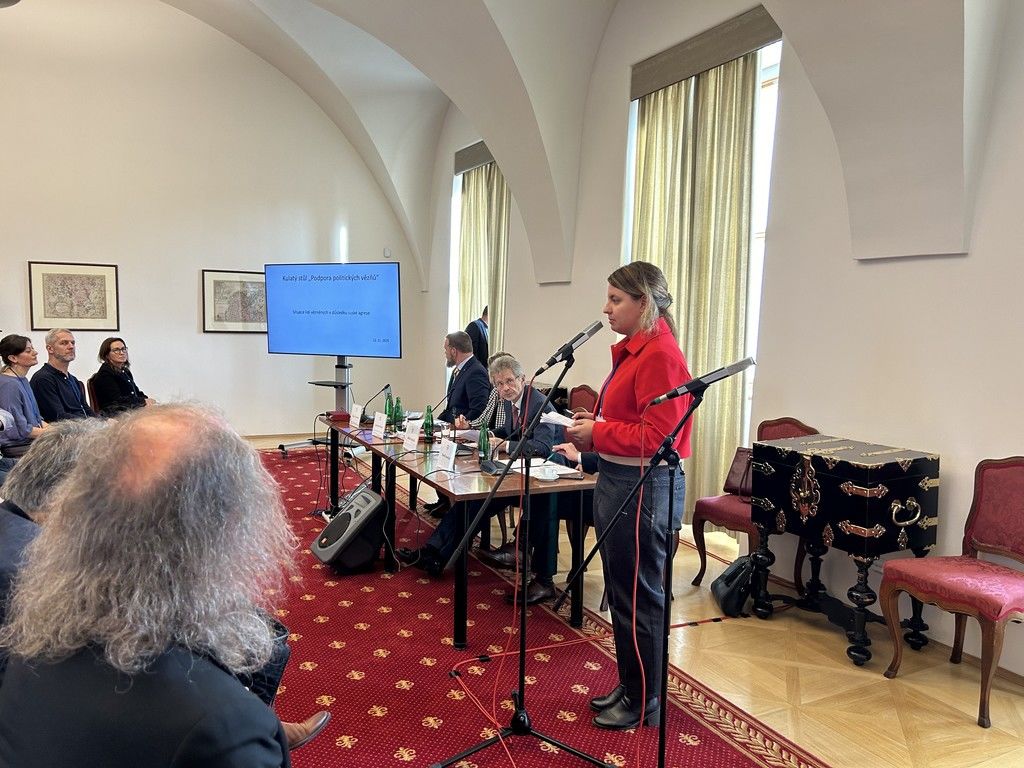The aim of the meeting was to exchange expert experience on the issue of political prisoners in general, but also to identify possibilities for specific assistance to people imprisoned as a result of Russian aggression against Ukraine. The speakers also discussed how the Czech Republic can actively contribute to their release. The round table was held under the auspices of the Senate Education Committee in cooperation with the Gulag.cz organization on the premises of the Upper Chamber of the Parliament of the Czech Republic on Tuesday, November 11, 2025.
The event followed an open letter from more than a hundred Czech former dissidents and political prisoners, who in July this year called on Czech politicians to more actively support their Russian counterparts, as well as an international initiative of Russian and Ukrainian independent initiatives People First, which aims to release all persons imprisoned in connection with Russian aggression. The organizers of the People First initiative are Nobel Peace Prize winners – the Russian association Memorial and the Ukrainian Center for Civil Liberties. The Gulag.cz association joined the initiative on behalf of the Czech Republic.
“We want the discussion to go beyond expressions of support. It is necessary for the Czech state to actively use diplomatic and parliamentary platforms to pressure for the release of political prisoners and kidnapped children and to improve their conditions,” explained Jaromíra Vítková, Vice-Chair of the Committee on Education, Science, Culture, Human Rights and Petitions, who sponsored the entire event.
In his opening speech, Senate President Miloš Vystrčil said: "The Senate's relationship to the fate of political prisoners is determined by its role. In addition to the legislative role and others related to how our country works, there is also the role of being an insurance policy or a kind of guarantee. And if we look at the fate of political prisoners, I think that we should be a guarantee of not forgetting to support them. Because if someone somewhere in the world defends the ideas of freedom and democracy and is imprisoned for it, they are also fighting for us, fighting for our values and our ideas, which we can say here, we can promote them, and no one punishes or imprisons us for it."
The meeting in the upper chamber was also attended by the chairman of the Senate media committee, David Smoljak, and members of the education committee, Miluše Horská, Zdeněk Papoušek, and Břetislav Rychlík, who added a personal memory: "My relatives were authentic prisoners of Stalin's gulag as Czechoslovaks. Thanks to Heliodor Píka, they got into the 1st Czechoslovak Army Corps and came from Buzuluk to Prague."
The round table in the Frýdlantský Salonek was also attended by the Ukrainian ambassador to the Czech Republic, Vasyl Zvaryč, Deputy Minister of Foreign Affairs Jan Marián, Director of Amnesty International Pavel Gruber, and former dissident and political prisoner Petr Pospíchal. Former Ukrainian prisoner of war Julian Pylypej, as well as former political prisoner and editor of Radio Free Europe/Radio Liberty, Alsu Kurmaševa, presented their first-hand experiences from Russian prisons and camps. The issue of imprisoned Ukrainians was presented by Mykhailo Romanov from the Kharkiv Human Rights Group, and the situation of Russian political prisoners was discussed by Alexandra Skorvid, an expert from the Gulag.cz organization.
The participants agreed that it is necessary to create a set of recommendations for the Government of the Czech Republic, Parliament and the Ministry of Foreign Affairs, which will propose specific steps. This file will also be submitted to the Senate Foreign Relations Committee meeting, which will take place on Wednesday, November 19.
• direct support for political prisoners and their families in the form of letters of solidarity or in the form of collections
• pressure to ensure access for human rights and humanitarian organizations, relevant advocacy services for unjustly imprisoned
• access for unjustly imprisoned people to health care
• putting pressure on people responsible for war crimes and human rights violations
• greater media coverage and raising awareness of war crimes and human rights violations
• active use of international forums (OSCE, Council of Europe, EU) to promote these measures
“I am very pleased with the enormous support that the Czech Senate has given to the topic. The discussion clearly showed that the Czech Republic can play a significant role in connecting European initiatives, diplomatic pressure and practical assistance to the families of political prisoners. People must come first,” says the chairman of Gulag.cz Štěpán Černoušek.
The Ukrainian Ambassador to the Czech Republic, Vasyl Zvaryč, also joined the discussion, emphasizing that we cannot be calm and tired until the last prisoner of war, the last political prisoner, and the last kidnapped Ukrainian child are released and returned to their families.
At the end of the round table, it was stated that the topic of political prisoners and other unjustly imprisoned people must remain permanently on the agenda of Czech and European politics, and that the shared responsibility of democratic countries for the fate of these people does not end with a declaration, but with concrete action.
The official text of the press release of the Senate of the Czech Republic can be found HERE.
